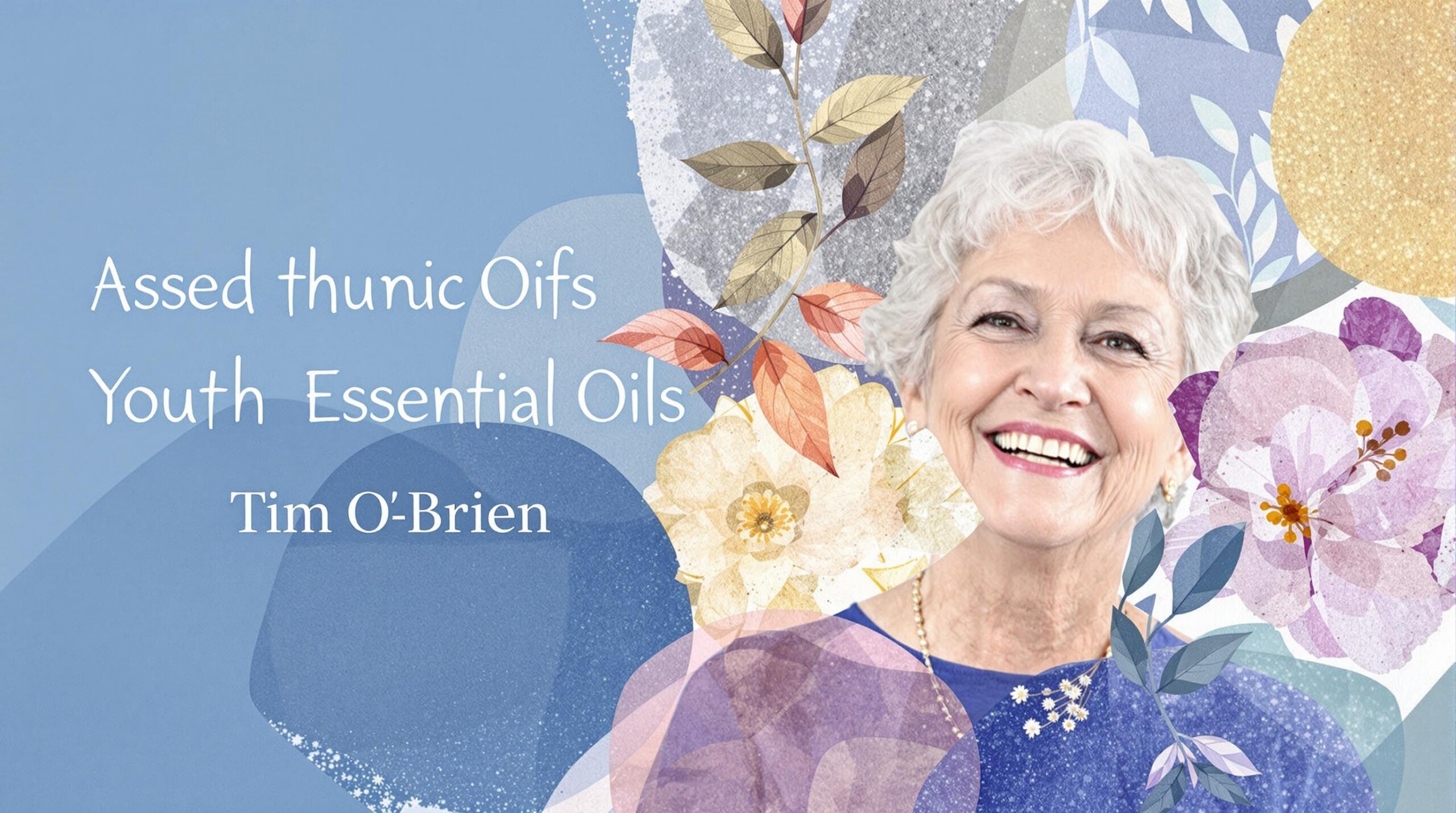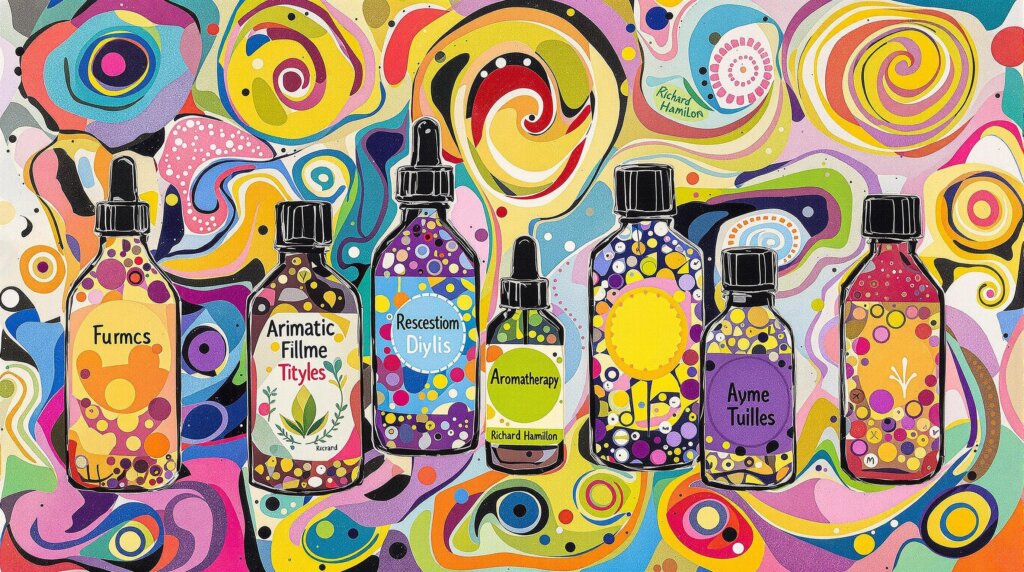Understanding Aromatherapy and Aging: The Basics
What is Aromatherapy and its Connection to Aging?
Aromatherapy isn’t just about pleasant scents – it’s a legitimate therapeutic approach that’s gaining recognition in age-related wellness. Essential oils contain powerful compounds that interact with our bodies at cellular levels, potentially influencing how we age. The science behind this ancient practice is increasingly backed by modern research, particularly in areas of brain health and stress reduction.
The Science Behind Essential Oils and Aging
Essential oils work through two main pathways: inhalation and topical application. When inhaled, aromatic molecules travel directly to the limbic system – our emotional brain center. Through the skin, these compounds enter the bloodstream, where they can influence cellular processes. Many essential oils contain antioxidants that combat free radicals, those pesky molecules that accelerate aging.
Historical Use and Modern Research
Aromatherapy’s roots trace back thousands of years, with ancient civilizations from Egypt to China documenting the anti-aging properties of aromatic plants. Modern science now validates many of these traditional uses. Research from the National Institute of Aging shows that certain essential oils may help maintain cognitive function and reduce inflammation – two key factors in healthy aging.
Common Misconceptions About Aromatherapy
The biggest myth? That aromatherapy is just about making things smell nice. In reality, essential oils contain bioactive compounds with measurable effects on human physiology. Another misconception is that all essential oils are safe because they’re natural. The truth is, these powerful plant extracts require proper dilution and careful use, especially for seniors.
Research and Evidence
Clinical studies paint an encouraging picture. Research published in the Journal of Alternative and Complementary Medicine found that lavender oil significantly improved sleep quality in older adults – crucial for cellular repair and brain health. Studies on rosemary oil show improved cognitive performance and memory in elderly participants, with some showing up to 75% better recall abilities.

Essential Oils for Age-Related Concerns
Top Essential Oils for Aging Well
Lavender stands out as the superstar for aging gracefully. It reduces cortisol levels by up to 40%, promoting better stress management and sleep. Frankincense shows promising results in reducing inflammation and supporting skin elasticity. Rose oil contains compounds that help maintain skin moisture and reduce the appearance of age spots.
Brain Health and Cognitive Function
Rosemary oil emerges as a cognitive powerhouse. Studies show it increases memory performance and mental alertness in seniors. Peppermint oil improves focus and concentration, while lemon balm helps reduce anxiety and promotes mental clarity. These benefits become increasingly important as we age.
Application Methods and Safety Considerations
Safe Usage Guidelines for Seniors
Older adults need special consideration when using essential oils. Their thinner skin and potentially compromised immune systems require careful dilution – typically 1% concentration (5-6 drops per ounce of carrier oil) instead of the standard 2-3%. Regular patch testing becomes crucial to prevent adverse reactions.
Effective Application Techniques
Different methods suit different needs. Diffusion works well for cognitive benefits and mood enhancement. Topical application, properly diluted with carrier oils like jojoba or sweet almond, helps with skin-related aging concerns. Bath applications can combine multiple benefits while being gentle on senior bodies.
Important Safety Precautions
Essential oils require careful handling. They should never be applied undiluted to the skin. Certain oils increase photosensitivity – particularly citrus oils – requiring extra sun protection. Interactions with medications need consideration, making consultation with healthcare providers essential.
Specific Applications for Age-Related Issues
Sleep and Relaxation
Quality sleep becomes more elusive with age, yet it’s crucial for longevity. Lavender, chamomile, and vetiver oils show remarkable effectiveness. Research indicates that lavender oil can reduce time to fall asleep by 20-30 minutes and improve sleep quality by up to 60%.
Joint and Muscle Comfort
Inflammation often increases with age, affecting mobility and comfort. Eucalyptus, ginger, and peppermint oils contain natural anti-inflammatory compounds. Studies show these oils can reduce pain scores by 30-50% when properly applied to affected areas.
Skin Health and Appearance
Aging skin needs special attention. Frankincense, myrrh, and helichrysum oils support collagen production and skin elasticity. Research shows these oils can improve skin firmness by up to 25% and reduce the appearance of age spots by 15-30%.
Essential Oil Blends for Different Purposes
- Memory Blend: 3 drops rosemary, 2 drops peppermint, 2 drops lemon
- Sleep Blend: 4 drops lavender, 2 drops chamomile, 1 drop vetiver
- Joint Comfort: 3 drops eucalyptus, 2 drops ginger, 2 drops peppermint
- Skin Rejuvenation: 3 drops frankincense, 2 drops myrrh, 1 drop rose
- Mood Enhancement: 3 drops bergamot, 2 drops ylang ylang, 2 drops orange
- Energy Boost: 3 drops peppermint, 2 drops lemon, 2 drops rosemary
- Stress Relief: 4 drops lavender, 2 drops bergamot, 1 drop geranium
- Respiratory Support: 3 drops eucalyptus, 2 drops tea tree, 2 drops pine
Daily Aromatherapy Routine for Seniors
- Morning: Diffuse energizing oils like peppermint or lemon
- Mid-morning: Apply diluted rosemary oil blend for mental clarity
- Afternoon: Use lavender or bergamot for stress management
- Evening: Apply joint comfort blend if needed
- Bedtime: Diffuse sleep-promoting oils like lavender or chamomile
Future Developments in Aromatherapy for Aging
Research continues to uncover new benefits of essential oils for aging populations. Scientists are studying the impact of aromatherapy on telomere length – a key marker of cellular aging. New delivery systems are being developed to enhance the absorption and effectiveness of essential oils. Personalized aromatherapy protocols based on genetic profiles may become standard practice.
Aromatherapy offers a natural, pleasant, and increasingly well-documented approach to support healthy aging. The key lies in proper selection, dilution, and application of essential oils. When used correctly, these natural compounds can enhance physical comfort, emotional well-being, and cognitive function in seniors. The growing body of research supports what traditional wisdom has long known – that the power of plants can help us age more gracefully and comfortably.



